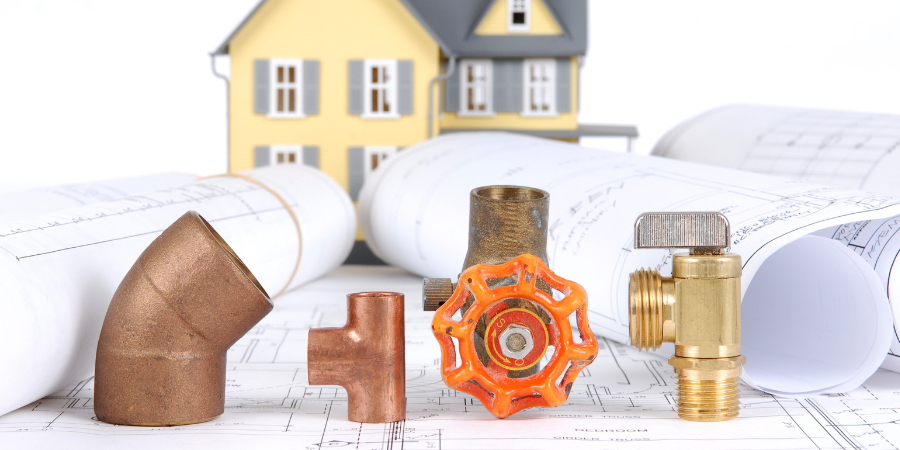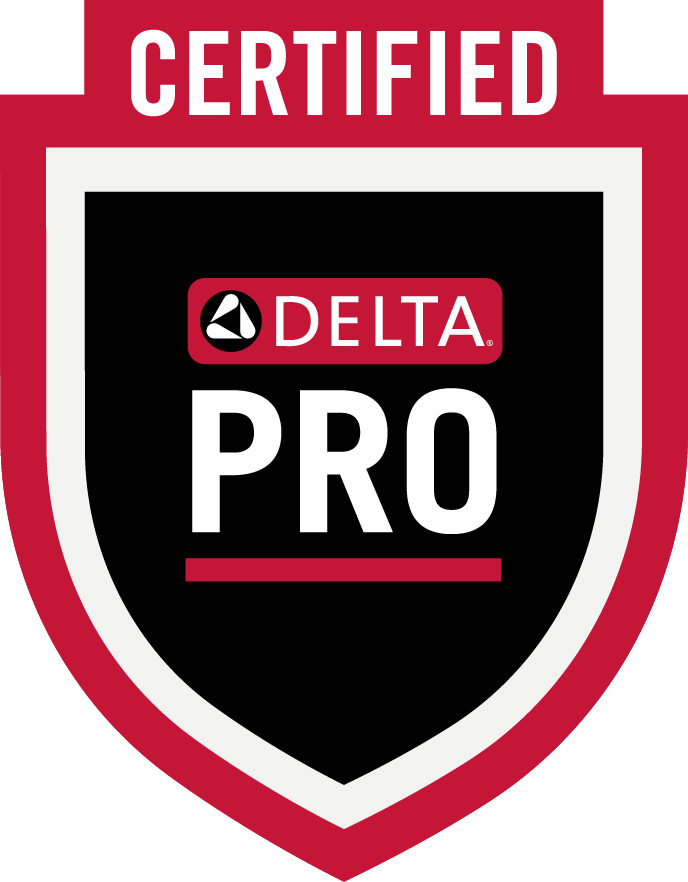A home’s plumbing system is one of the most integral yet often overlooked components of residential infrastructure. This complex network of pipes, fixtures, and appliances works in harmony to ensure that water is delivered when and where it is needed and waste is efficiently removed. Whether it’s ensuring a steady supply of clean drinking water or the proper functioning of household appliances like dishwashers and washing machines, a home’s plumbing system plays a critical role in maintaining the household’s overall comfort and sanitation.
At OVC Plumbing and Drain, we often encounter homeowners who are unfamiliar with how their plumbing system operates. This lack of understanding can lead to neglect in maintenance, which in turn results in issues such as leaks, clogs, and even extensive water damage. To help homeowners gain a deeper appreciation and understanding of this essential system, we offer a comprehensive overview of the key components that make up a home’s plumbing system, how they function, and what you can do to ensure their longevity.
The Water Supply System
The delivery of fresh clean water to a home is a basic life requirement. We all expect to open a faucet or turn on the washing machine and have enough water to complete daily tasks. The water supplied to residential properties can originate from the municipal water supply or from a private well located on the property.
Municipal vs. Well Water Sources
The water supply system is the part of the plumbing network responsible for delivering water to your home. Depending on your location, your home may either be connected to a municipal water supply or rely on a private well. Municipal systems deliver water that has already been treated and purified, ensuring it meets safety standards for consumption. Well water, on the other hand, requires homeowners to install filtration and purification systems to ensure water quality.
Both systems have advantages, but regardless of the source, the proper delivery of water into the home is critical. An intricate network of pressurized pipes facilitates this.
The Role Of Water Pressure
Water pressure is the force that drives water through your pipes, ensuring that it reaches all fixtures and appliances efficiently. Proper water pressure is vital for the functionality of your plumbing system, but excessive pressure can damage pipes, valves, and appliances, leading to leaks and bursts. Conversely, insufficient water pressure can make basic tasks such as showering a lackluster event. Pressure regulators are often installed to increase low pressure or reduce water pressures that are dangerously high. A well-functioning regulator will maintain safe water pressure levels within the home.
The Drain-Waste-Vent (DWV) System
The DWV system is responsible for the removal of wastewater and sewage from the home, directing it to the municipal sewer or a private septic tank. This system relies on gravity to move waste downwards through the drainage pipes, and its design must be carefully planned to ensure that waste flows freely without clogging.
The Function Of Drain Pipes
Drain pipes are usually larger than supply pipes and are made of materials like PVC or cast iron, which are designed to handle the corrosive nature of wastewater. Each drain in your home, whether it’s connected to a sink, toilet, or shower, leads to a main drainpipe that transports wastewater away from your home.
The Importance Of Venting
Venting is a critical, often overlooked part of the DWV system. Vents allow sewer gases to escape from the plumbing system while also preventing air pressure imbalances that could interfere with water flow. Every drain in the home should be connected to a vent, typically installed on the roof, to maintain proper airflow and ensure efficient waste removal. A malfunctioning or blocked vent can lead to sluggish drainage, sewer odors, and even dangerous gas buildup in the home.
Fixtures And Appliances
Plumbing fixtures are the most visible part of the plumbing system and the components that homeowners interact with daily. Sinks, showers, and toilets are connected to both the water supply and the DWV system. For each of these fixtures, proper installation and maintenance are critical. Leaky faucets or inefficient fixtures can waste significant amounts of water over time, contributing to higher water bills and potential damage.
Modern fixtures are often designed with water conservation in mind. Low-flow faucets, showerheads, and dual-flush toilets are commonly installed to reduce water usage without compromising performance.
Appliances: Water Heaters, Dishwashers, And Washing Machines
In addition to standard fixtures, household appliances such as water heaters, dishwashers, and washing machines are integral to a home’s plumbing system. Water heaters supply hot water to the home, and they come in traditional tank models as well as more energy-efficient tankless versions. Regular maintenance, such as flushing the tank to remove sediment buildup, ensures the longevity and efficiency of the water heater.
Dishwashers and washing machines rely on a steady water supply and proper drainage to function. Ensuring that these appliances are connected correctly and that their water lines are free from obstructions is key to preventing leaks and clogs.
Plumbing Pipes And Materials
Modern plumbing systems use various types of pipes, each suited for specific purposes. The most common materials include copper, PEX (cross-linked polyethylene), and PVC (polyvinyl chloride). Copper piping has long been the standard due to its durability and resistance to corrosion, while PEX is prized for its flexibility and ease of installation. PVC is often used for drainage pipes due to its cost-effectiveness and resistance to chemicals in wastewater.
Each material has its benefits and potential drawbacks, and the choice of piping often depends on the specific needs of the home and its plumbing configuration.
The Role Of Pipe Insulation
Pipe insulation is another critical aspect of the plumbing system that is often overlooked. Insulating pipes helps maintain water temperature, reduces energy consumption, and prevents freezing during cold weather. Frozen pipes can burst, causing extensive water damage to a home. Installing proper insulation, particularly in colder climates, is an essential preventative measure that helps protect both the pipes and the home.
Common Plumbing Issues And Preventative Maintenance
If you are a homeowner you will likely address some, if not all of the following plumbing issues. As with all things, plumbing pipes, fixtures, and appliances wear out and need to be serviced or replaced. Here we will discuss the most common issues.
Leaks
One of the most common issues homeowners face is plumbing leaks. Leaks can occur in any part of the system, from fixtures and faucets to hidden pipes behind walls. Over time, even minor leaks can cause extensive water damage and mold growth, compromising the structural integrity of a home. Regular inspections by professionals at OVC Plumbing and Drain can help identify leaks early, preventing costly repairs down the line.
Clogs And Slow Drains
Clogs are another frequent issue, particularly in drain pipes. Clogs are often caused by the accumulation of debris such as hair, soap scum, grease, and food particles. These blockages can slow down drainage and, in severe cases, cause backups that lead to foul odors and potential flooding. Homeowners can prevent clogs by being mindful of what goes down the drain and scheduling regular drain cleaning services.
Water Heater Maintenance
Water heaters require regular maintenance to operate efficiently and prevent issues such as sediment buildup, which can reduce heating efficiency and lead to system failure. Flushing the water heater and checking the anode rod for corrosion are essential tasks that should be performed regularly to extend the life of the appliance.
Looking To Learn More About Your Home’s Plumbing System?
Understanding the complexity of a home’s plumbing system can help homeowners appreciate the importance of regular maintenance and professional inspections. From the water supply and drainage systems to fixtures, appliances, and piping materials, each component plays a crucial role in ensuring the system’s efficiency, reliability, and longevity.
At OVC Plumbing and Drain, we are committed to helping homeowners keep their plumbing systems in peak condition. Regular preventative maintenance, timely repairs, and professional inspections are all critical to avoiding the costly consequences of neglect. If you’re experiencing plumbing issues or want to ensure your system is functioning optimally, contact us today. Our team of experienced plumbers is here to provide expert advice and services tailored to your needs.
Taking a proactive approach to plumbing maintenance not only extends the life of your system but also protects your home from potential water damage and high utility bills. Trust OVC Plumbing and Drain to keep your home’s plumbing system running smoothly, efficiently, and safely for years to come.






